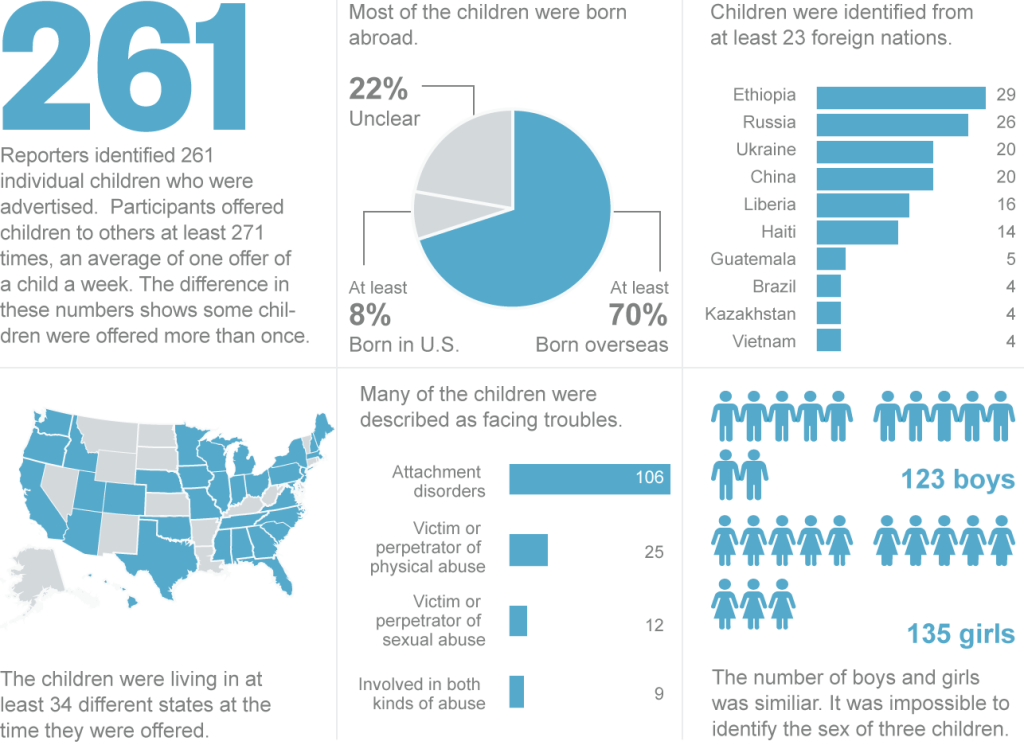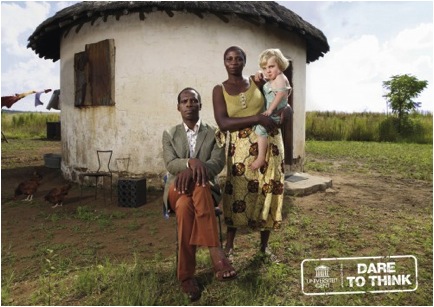“Oh how nice,” said the woman standing in front of me in the customs line. “I got mine last year.”
I looked up to see that she was referring to the child in the arms of the blonde-haired, blued-eyed couple. A Chinese girl, probably a year old, dressed in red, white, and blue.
My heart sank.
***
Reuters this week has an important investigation on America’s underground market for adopted children, or “a loose Internet network where desperate parents seek new homes for kids they regret adopting.” (See interview with Reuters reporter Megan Twohey on NBC Nightly News here.)

Like the case of Hana Williams, whose adoptive parents were convicted of her death from malnutrition and hypothermia in Washington state on September 10th, the stories uncovered in the Reuters reporting is shocking, appalling, despicable. Unfortunately, from my experiences, it is also not surprising.
A few years ago, in the small town where I was living, my organization was asked to weigh in on very sad case of two sisters from the African continent, ages 12 and 7, who were adopted by a US citizen who gave them up to social services in Texas, only to have been removed from their second adoptive family in California due to sexual abuse. The older girl expressed that she just wanted to “go home,” or be repatriated.
I have many reservations about international adoption, and probably like many of my readers, I also have friends who are the proud and loving parents of children who have been adopted internationally. So this is a tough post to write. But it’s important for people new to the issue to understand the dangers of international adoptions and to consider that they are not a long-term solution for the vast numbers of vulnerable children in the developing world.
Aside from cases like these of abuse, exploitation, and abandonment once children are adopted, there are also long-term, traumatic consequences when children are deprived of their families and their identities. There are also long-term, traumatic consequences when families in the developing world are deprived of their children.
“As international adoptions have flourished, so has evidence that babies in many countries are being systematically bought, coerced, and stolen away from their birth families [to meet Western demand], wrote E.J. Graff in a 2008 feature in Foreign Policy, “The Lie We Love.” (See also this article from Good Intentions Are Not Enough on the lucrative trade of adoptions.)

“Oh, people from country X don’t want their children anyway,” said the long-term aid worker I sat across from at the table, who I had just met, after I told her the story of the two sisters. I’ve heard some pretty offensive and racist remarks in my day, but this one…this one was painful. I remember breathing deeply and asking her how she could say that. Despite all her experience in Africa, to think so little of the parent/child bond, I just couldn’t understand. There are some things that are universal.
These are the kind of attitudes and perceptions that lead ten U.S. missionaries to be arrested for kidnapping in Haiti for trying to take 33 children out of the country after the 2010 earthquake. Objectification and “ownership” of children is also rampant in US culture and celebrity adoptions compound the problem, making it “cool” for people to have “rescued” a child. But I imagine that good parenting and pity don’t mix.
Let this Reuters report sink in. Abhor that people could do this. Honor the bravery of the children and parents who were willing to speak out and share their stories. Then let’s push for greater oversight once children are adopted from overseas.
Let’s also dare to envision a future for the world’s children where they are growing, playing, learning, thriving within the care of their own loving families and communities. That way we can keep addressing the kinds of poverty and global inequality that make parents so desperate for their children to have a better life that they might have to give them up.
***
A poem I wrote for the sisters:
Unfathomable Journey
Promise of opportunity
became
the deepest, ugliest, cruelest
parts of humanity
lying at your feet, on your feet, shackled to your feet.
Greetings, young ones
we do not have to
acknowledge your soul.
We tear you away
from yourself, your home.
But don’t let us – take also this secret
deep in you,
there is something
no one can destroy.
If you can, hold on,
with all your might.
Let this unfathomable journey
point you,
eventually,
home.

Thank you for sharing your poem, Jennifer. The Reuters story filled me with so much sadness and my mind is churning.
several times have come across these kind of articles and all I say is that thank God, we are working to restore and preserve families . There is a similar story in our local paper here in Zambia about the girl who was rescued for adoption in the USA. Her story sends a lot of concerns and more questions. How I wished we could all unity to do better for our children than subjecting children to what will never workout for them.
“Policy reforms, domestic and international, won’t be enough without a change in thinking, particularly among American evangelicals.” http://www.nytimes.com/2013/09/22/opinion/sunday/the-evangelical-orphan-boom.html